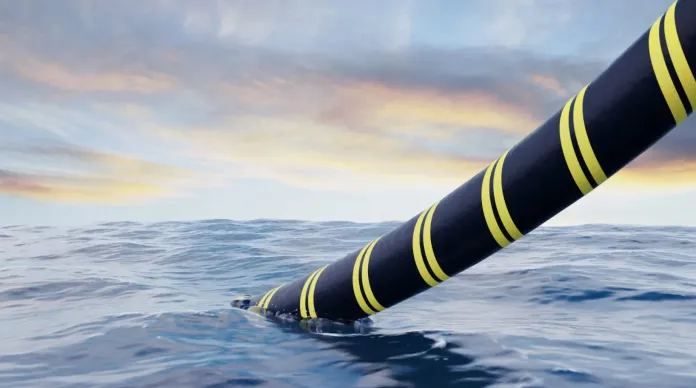
File Image: Undersea Cable
Escalating tensions between the United States and China are reshaping the global landscape of undersea cable deployments. As a result of these tensions, many international subsea cable projects are circumventing China. Concerns regarding data security and geopolitical influence are the primary drivers behind this strategic shift.
Once regarded as a potential hub for subsea networks, China is now experiencing a noticeable decline in the number of undersea cables connecting it with the rest of the world. This decline underscores the potential for disruptions to international communication networks.
Subsea cables are the backbone of the internet, telecommunication, and international data transmission. They span vast ocean expanses, connecting continents and countries, facilitating global connectivity. Despite their seemingly inconspicuous appearance, subsea cables play a critical role in facilitating global communication, commerce, and knowledge sharing.
Their significance extends beyond their technical functionality. Subsea cables are essential drivers of economic growth, enabling international trade, commerce, and financial transactions on an unprecedented scale. Moreover, they play a pivotal role in bridging the digital divide by providing access to information and resources in remote regions and developing countries.
According to a report by AsiaNikkei, China is expected to have only three undersea cables laid down after this year, less than half the planned number for Singapore. This trend signals potential disruptions to international communication networks.
The backdrop to this shift lies in the deepening rivalry between the United States and China, two economic superpowers competing for global dominance. Tensions between the two nations have escalated in recent years, leading to heightened scrutiny of data security and infrastructure projects, particularly those involving undersea cables, which serve as the backbone of the internet.
Subsea cables are integral to global data traffic, carrying an estimated 99% of the world’s data. Approximately 140,000 kilometers of subsea cables have been laid this year, indicating the growing significance of digital connectivity.
Major players in the tech industry, including Google, are leading efforts to bypass Chinese influence in undersea cable deployments. Initiatives such as the Clean Network initiative, spearheaded by the United States under the previous Trump administration, have excluded Chinese businesses from critical telecom infrastructure projects.
Major tech companies have faced pressure from US authorities to revise their undersea cable plans, resulting in the exclusion of China from certain projects. Additionally, the World Bank-led subsea cable project for the South Pacific island nations aligns with US policy objectives, further marginalizing Chinese involvement in global connectivity initiatives.
As a result, China’s presence in international subsea cable networks is rapidly diminishing, with no new undersea projects scheduled beyond 2025. Meanwhile, there remains strong demand for data traffic between the United States and Asia, driving plans for additional cable installations to key destinations such as Japan, Singapore, and Guam.
The escalating tensions between the United States and China have broader implications for the Indo-Pacific region, where military confrontations and territorial disputes have heightened geopolitical concerns. Recent naval maneuvers in the South China Sea have exacerbated tensions between the two global powers.
China has condemned the United States for infringing upon its sovereignty, with recent incidents involving US naval vessels crossing disputed waters. Despite international law declaring China’s claims lacking legal basis, Beijing maintains a major presence in the region, fueling tensions with neighboring countries.
In conclusion, the escalating tensions between the United States and China are reshaping the global undersea cable landscape, with many projects avoiding Chinese involvement due to concerns over data security and geopolitical influence. This shift has broader implications for international communication networks and geopolitical dynamics in the Indo-Pacific region.















